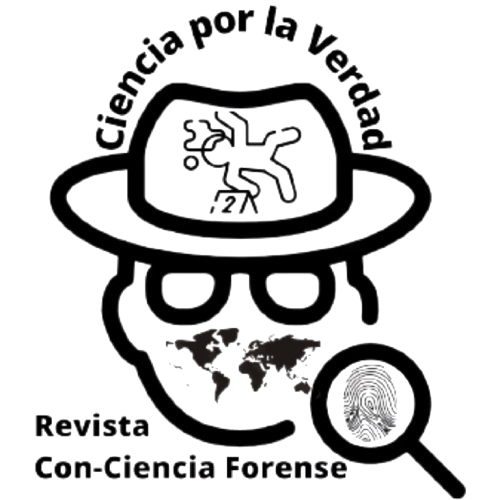Code of Ethics
Code of Ethics
Ethical Standards of the Journal "Con - Ciencia Forense"
The journal "Con - Ciencia Forense," committed to the highest ethical standards, adheres to the guidelines of the Committee on Publication Ethics (COPE). Our mission is to ensure integrity at every stage of the editorial process, from the submission of manuscripts to their publication, promoting content originality, transparency in peer review, and the prevention of inappropriate practices such as plagiarism, conflicts of interest, and duplicate publications. We collaborate with authors, reviewers, and editors to ensure that each article contributes ethically and significantly to advancing knowledge in forensic and criminal sciences.
I. Objective
The ethical standards aim to establish clear principles to ensure transparency, fairness, and scientific rigor in the production and dissemination of knowledge through the journal. These practices foster responsibility and prevent behaviors that may compromise the quality or integrity of the publications.
II. Originality Criteria
At "Con - Ciencia Forense," we value originality as a fundamental pillar of scientific publication. This criterion requires authors to present unpublished, authentic works supported by their analyses, reflections, and findings.
- Avoiding Plagiarism: All manuscripts must be original. Appropriation of ideas, data, or texts without proper attribution will not be tolerated.
- Innovation and Contribution: Articles should provide new knowledge or relevant perspectives within forensic sciences and related disciplines.
- Declaration of Authorship: Authors must certify that the submitted work has not been previously published and is not under simultaneous review by another journal.
III. Ethical Commitments
Authors
- Originality and Accuracy: Authors are responsible for ensuring the authenticity of the data and the originality of the submitted manuscripts.
- Acknowledgment of Sources: Proper citation of all ideas, data, or third-party works used is mandatory.
- Co-author Approval: All co-authors must have significantly contributed to the work and approved the final version before submission.
- Conflict of Interest Disclosure: Authors must disclose any potential conflicts that may influence the work's results.
Reviewers
- Impartiality and Confidentiality: Reviewers should objectively evaluate manuscripts, maintain content confidentiality, and refrain from using it for personal gain.
- Conflict of Interest Disclosure: If a reviewer identifies a conflict of interest with the authors or content, they must notify the editorial committee and excuse themselves from the review.
Editors
- Transparency in Editorial Decisions: Decisions will be based solely on the scientific merit of the work, free from bias or external influence.
- Conflict of Interest Management: Editors will avoid managing manuscripts when a conflict of interest is present.
- Responsibility for Ethical Violations: Editors are committed to investigating and resolving any complaints related to unethical conduct in publications.
IV. Ethical Violations
Violations of these standards include, but are not limited to:
- Plagiarism, self-plagiarism, or duplicate publication.
- Falsification or manipulation of data.
- Improper omission or inclusion of authors.
- False declarations regarding conflicts of interest or funding.
V. Reporting Ethical Violations
Anyone may report potential ethical violations related to manuscripts or publications in the journal "Con - Ciencia Forense." Reports should be sent to the editorial committee by email, describing the details of the case and providing evidence to support the accusation.
VI. Procedures for Managing Ethical Violations
The journal adheres to the procedures established by the Committee on Publication Ethics (COPE):
- Receipt of Complaint: The editorial committee will review the validity of the complaint and determine whether an investigation should be initiated.
- Investigation: An impartial team will analyze the evidence and gather additional information, allowing the involved parties to present their version of the facts.
- Resolution:
- Retraction of the published manuscript, if applicable.
- Notification to the authors' affiliated institutions.
- Sanctions such as a ban on future publications in the journal.
- Communication of Results: The investigation results will be communicated to the involved parties and, if relevant, published on the journal’s official page.
"Con - Ciencia Forense" reaffirms its commitment to ethics, transparency, and best editorial practices, contributing to the development of a trustworthy academic ecosystem in forensic and criminal sciences






